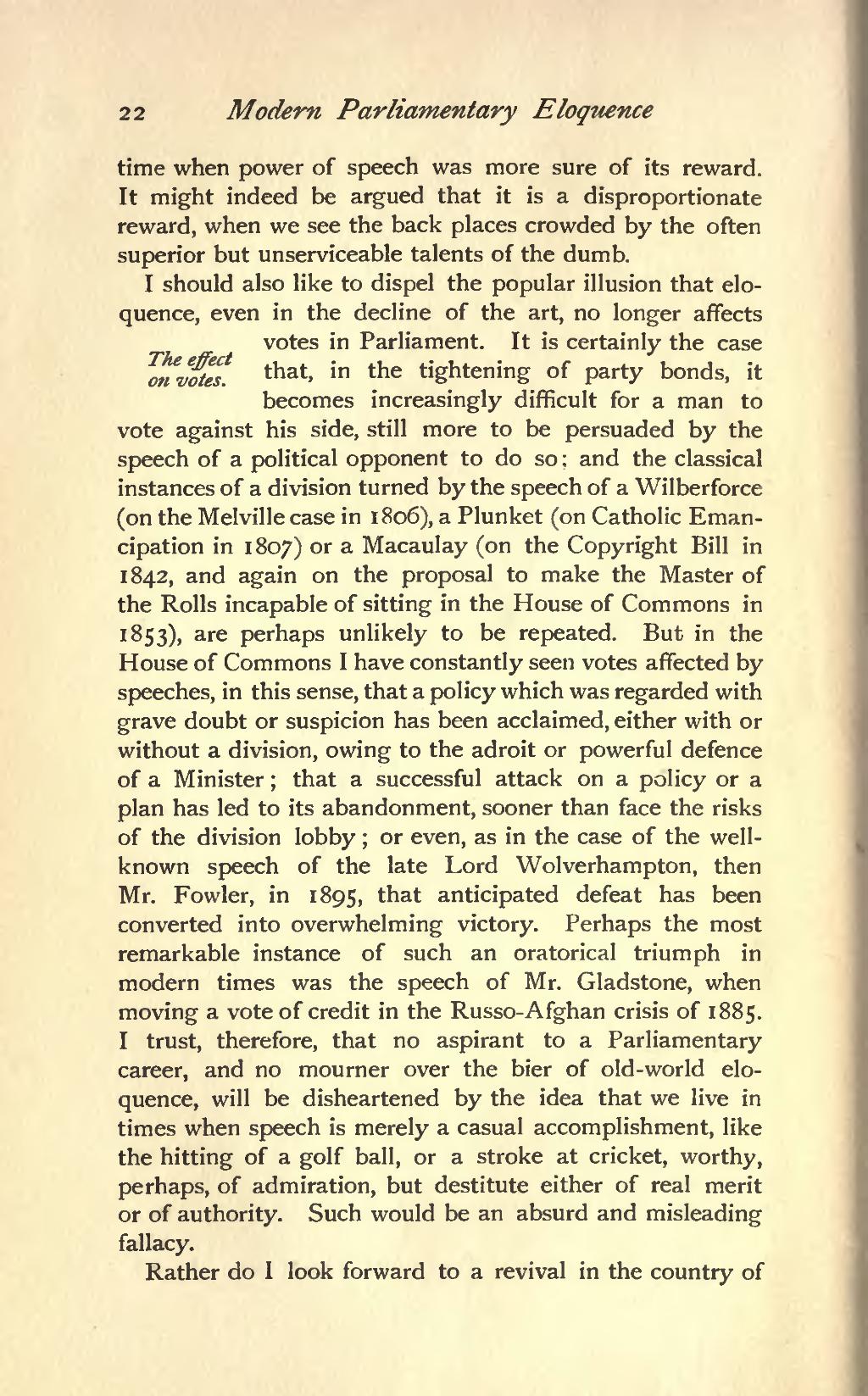time when power of speech was more sure of its reward. It might indeed be argued that it is a disproportionate reward, when we see the back places crowded by the often superior but unserviceable talents of the dumb.
The effect on votes.I should also like to dispel the popular illusion that eloquence, even in the decline of the art, no longer affects votes in Parliament. It is certainly the case that, in the tightening of party bonds, it becomes increasingly difficult for a man to vote against his side, still more to be persuaded by the speech of a political opponent to do so; and the classical instances of a division turned by the speech of a Wilberforce (on the Melville case in 1806), a Plunket (on Catholic Emancipation in 1807) or a Macaulay (on the Copyright Bill in 1842, and again on the proposal to make the Master of the Rolls incapable of sitting in the House of Commons in 1853), are perhaps unlikely to be repeated. But in the House of Commons I have constantly seen votes affected by speeches, in this sense, that a policy which was regarded with grave doubt or suspicion has been acclaimed, either with or without a division, owing to the adroit or powerful defence of a Minister; that a successful attack on a policy or a plan has led to its abandonment, sooner than face the risks of the division lobby; or even, as in the case of the well-known speech of the late Lord Wolverhampton, then Mr. Fowler, in 1895, that anticipated defeat has been converted into overwhelming victory. Perhaps the most remarkable instance of such an oratorical triumph in modern times was the speech of Mr. Gladstone, when moving a vote of credit in the Russo-Afghan crisis of 1885. I trust, therefore, that no aspirant to a Parliamentary career, and no mourner over the bier of old-world eloquence, will be disheartened by the idea that we live in times when speech is merely a casual accomplishment, like the hitting of a golf ball, or a stroke at cricket, worthy, perhaps, of admiration, but destitute either of real merit or of authority. Such would be an absurd and misleading fallacy.
Rather do I look forward to a revival in the country of
